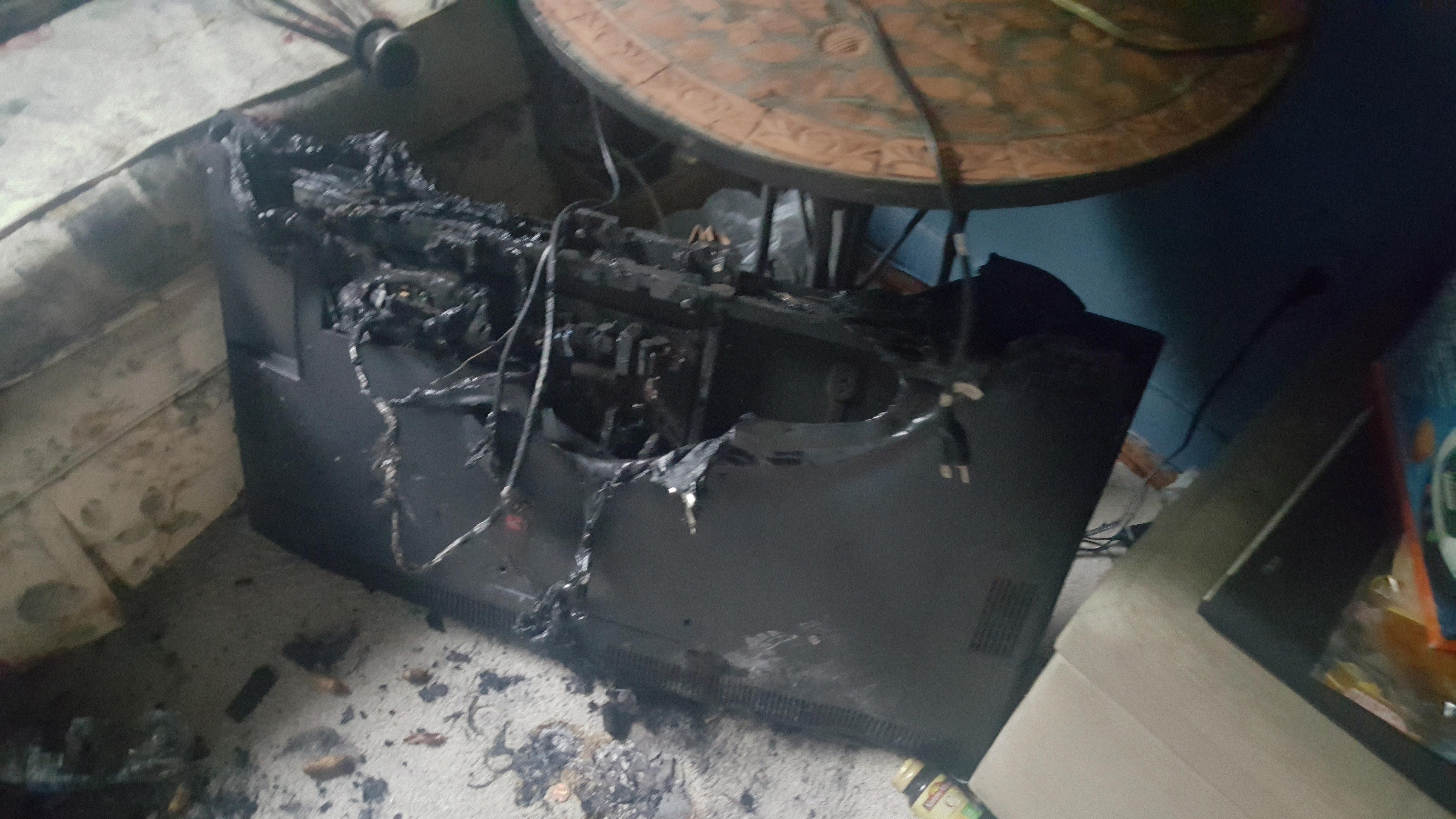TVs are a common household item that many of us rely on for entertainment and information. However, it’s important to be aware of the potential dangers associated with them. One such danger is the possibility of a TV exploding.
TV explosions can occur for a variety of reasons, but two common causes are voltage surges and overheating. In areas with faulty wiring, there is a risk of sudden surges in voltage, which can overload the TV’s circuitry and lead to an explosion. This is why it’s important to ensure that your home’s wiring is in good condition and regularly checked by a professional.
Modern TVs are equipped with power dampers, which are designed to protect against the impact of sudden voltage surges. These dampers help to regulate the flow of electricity and prevent damage to the TV. However, it’s still crucial to be cautious and take steps to prevent voltage surges, such as using surge protectors and avoiding overloading electrical outlets.
Overheating is another potential cause of TV explosions. Like any electronic device, TVs generate heat when in use. If a TV is placed in an area with poor ventilation or is subjected to prolonged use without a break, it can overheat and potentially explode. To prevent this, it’s important to ensure that your TV is placed in a well-ventilated area and not covered or obstructed by objects that could restrict airflow.
The recent tragic incident in Ghaziabad, where a teenager lost his life due to an LED TV explosion, serves as a stark reminder of the potential dangers associated with these devices. While the exact cause of the blast is still unknown, it highlights the importance of taking precautions and being vigilant when it comes to electrical safety.
TVs can explode due to voltage surges and overheating. While modern TVs are equipped with safety features to minimize the risk, it’s still crucial to be aware of the potential dangers and take steps to prevent them. Regularly check your home’s wiring, use surge protectors, and ensure proper ventilation for your TV to minimize the risk of an explosion. Stay safe and informed to protect yourself and your loved ones from such unfortunate incidents.
What Causes A TV Burst?
A TV can burst or explode due to several factors, including voltage surges and overheating. Let’s explore these causes in more detail:
1. Voltage Surges:
– Faulty Wiring: In areas with poor or faulty electrical wiring, sudden surges in voltage can occur. These spikes in voltage can overwhelm the TV’s internal circuitry, leading to a burst.
– Power Fluctuations: Power outages or fluctuations in the electrical grid can also cause voltage surges. While modern TVs are equipped with power dampers to mitigate the impact of such surges, extreme or repeated spikes in voltage can still cause a burst.
2. Overheating:
– Insufficient Ventilation: TVs generate heat during operation, and if they are placed in an area with poor ventilation, the heat may not dissipate properly. Over time, this can cause the internal components to overheat and potentially lead to a burst.
– Dust Buildup: Accumulated dust on the TV’s internal components, particularly on heat sinks or cooling fans, can impede proper heat dissipation. This can cause the TV to overheat and potentially burst.
– Blocked Air Vents: Blocking the air vents on the TV, either by placing objects too close or covering them, can restrict the airflow. This can lead to overheating and increase the risk of a burst.
It is important to note that modern TVs are designed with safety features to minimize the risk of bursting. These include thermal sensors that shut down the TV if it reaches a certain temperature threshold, as well as circuitry to handle voltage fluctuations. However, in rare cases or under extreme conditions, a TV may still burst.
To prevent TV bursts:
– Ensure proper electrical wiring and consult an electrician if you suspect any issues.
– Use surge protectors or voltage stabilizers to protect your TV from sudden voltage spikes.
– Keep the TV in a well-ventilated area, away from direct sunlight, and ensure that air vents are unobstructed.
– Regularly clean the TV to prevent dust buildup and ensure proper heat dissipation.
Remember, while the chances of a TV bursting are relatively low, taking these precautions can help minimize any potential risks.

Which TV Blast In Ghaziabad?
In Ghaziabad, Uttar Pradesh, a tragic incident occurred where a 17-year-old teenager lost his life in an LED TV explosion at his residence. The explosion resulted in severe injuries to his mother and a friend who were also present during the incident. The exact cause of the blast is still unknown and under investigation.
Key details about the incident:
– Location: The incident took place in Ghaziabad, Uttar Pradesh, a city in India.
– Victim: The victim was a 17-year-old teenager, whose identity has not been disclosed.
– Explosion: The explosion specifically occurred in an LED TV at the teenager’s house.
– Injuries: The teenager’s mother and a friend were grievously injured in the blast.
– Severity: Unfortunately, the teenager lost his life, while his mother and friend sustained severe injuries.
– Investigation: The cause of the explosion is yet to be determined and is currently under investigation.
It is important to note that LED TVs are generally considered safe and incidents like these are extremely rare. The specific circumstances surrounding this incident are still being examined to determine what led to the tragic explosion.
Conclusion
While it is possible for TVs to explode, such incidents are relatively rare and usually occur due to specific circumstances. The most common cause of TV explosions is a sudden surge in voltage, which can be a result of faulty wiring in the area. However, modern TVs are equipped with power dampers to mitigate the impact of such surges and minimize the risk of explosion. Overheating is another potential cause of TV explosions, although this can affect any electronic equipment. It is important to ensure proper ventilation and avoid blocking the vents of the TV to prevent overheating. The tragic incident in Ghaziabad serves as a reminder of the potential dangers associated with electronic devices, highlighting the importance of regular maintenance and safe usage practices to prevent accidents.







